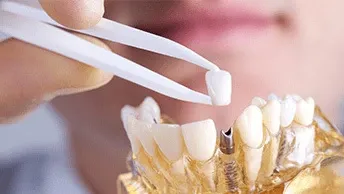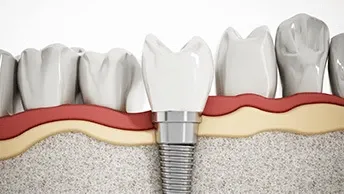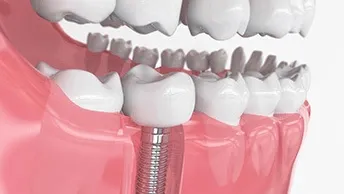Definition of Living with Dentures:
Living with dentures means that you have artificial teeth to replace your natural ones. Dentures are custom-made appliances that fit over your gums and help restore your smile and ability to chew and speak comfortably.
Caring for Dentures:
To keep your dentures in good condition, it's important to clean them daily with a soft brush and denture cleaner. Avoid using toothpaste as it can be abrasive. When you remove your dentures, make sure to soak them in a denture-cleaning solution to keep them moist and prevent warping. It's also important to maintain regular visits to your dentist to ensure proper fit and to address any issues.
Eating with Dentures:
When eating with dentures, start with small bites and chew slowly to get used to the new sensation. Avoid sticky or hard foods that can dislodge your dentures, and take care not to bite down too forcefully. You may find it helpful to cut your food into smaller pieces and use both sides of your mouth to chew evenly. Over time, you'll become more comfortable with eating and be able to enjoy a wide variety of foods.
Speaking Clearly with Dentures:
Speaking clearly with dentures can take some practice. Start by reading aloud or speaking in front of a mirror to help adjust your speech. If you find it challenging to pronounce certain sounds, try speaking slowly and exaggerating the movements of your mouth and tongue. It's also helpful to practice speaking with close friends or family members who can provide guidance and support.
Denture Hygiene Made Easy:
Maintaining good denture hygiene is essential for oral health. Rinse your dentures after meals to remove any food particles, and brush them daily to remove plaque and stains. Remember to clean your mouth thoroughly before inserting your dentures, and use a gentle rinse to soothe your gums. Take care not to drop your dentures as they can break easily, and always store them in a safe place.
Adjusting to Dentures:
It's normal to experience some discomfort and difficulty when adjusting to dentures. Initially, your dentures may feel bulky or awkward, and you may need time to adapt to the changes in your mouth. To make the adjustment process smoother, practice wearing your dentures for shorter periods each day and gradually increase the time. Use denture adhesive if needed to secure your dentures and minimize movement and sore spots. Be patient with yourself, as it may take a few weeks or months to become fully comfortable with your dentures.
Socializing with Dentures:
Living with dentures should not limit your social life. With some practice and confidence, you can continue to socialize and enjoy life to the fullest. Remember to always wear your dentures when in social settings, and practice speaking and smiling in front of a mirror to boost your self-assurance. If you experience any difficulty, seek support from friends, family, or a support group who can provide encouragement and advice.
Making Dentures Last:
To extend the lifespan of your dentures, it's crucial to handle them with care. Avoid using hot or boiling water, as it can warp the material. Always remove your dentures before going to bed to give your gums time to rest, and soak them overnight in a denture-cleaning solution. Regularly visit your dentist for check-ups and adjustments, as the fit of your dentures may change over time. By following these guidelines, you can ensure that your dentures remain comfortable and functional for a longer period.



